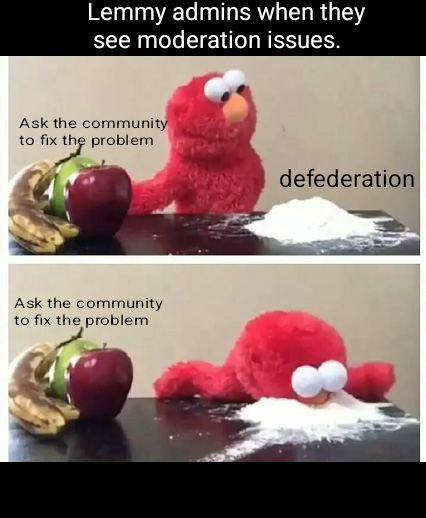this post was submitted on 25 Jun 2023
855 points (97.6% liked)
Memes
50892 readers
1651 users here now
Rules:
- Be civil and nice.
- Try not to excessively repost, as a rule of thumb, wait at least 2 months to do it if you have to.
founded 6 years ago
MODERATORS
you are viewing a single comment's thread
view the rest of the comments
view the rest of the comments

Close, but not quite. That situation does, indeed, arise, but what I am arguing for is a philosophical model that provides valid results even when applied by my worst enemy.
While we can certainly come up with any number of subjective characteristics distinguishing you from them, there is no objective distinction between your brand of intolerance and theirs. As the subjects of your intolerance, they have just as much a claim to declare you fascist as you have to declare them. The tragedy of Popper's paradox is that it absolutely requires, but does not give any guidance in determining who is the good guy and who is the baddie. In the form commonly presented, It just tells you it is a moral imperative to oppress your enemies. That's a big fucking problem when history eventually determines you were on the wrong side of the issue.
The free speech absolutist does not have this problem. He recognizes that he does not agree with his opponent, but he understands he is not empowered to silence his opponent. This is true regardless of who thinks themselves the good guy.
Popper's paradox calls for fascist reactions to fascism. Popper's paradox calls for the echo chambers and deepens the divisiveness that underpins so many of our societal problems today.
The deep divisiveness comes from the shitty ideas that should have been shunned long ago and instead were left to fester.
You don't care about instances loke Exploding Heads or their awful ideas because you're unaffected by them so you can hold these lofty perfect ideals instead of facing the reality of the situation.
Opposing and shunning hate speech is not fascism and your argument depends on pretending to be unable to see the difference between hate and disagreement.
Allow me to illucidate the simplicity of this in reality:
You continue to ignore historical precedence. Everyone want to think that they would have been Oskar Schindler, but the reality is that if you were a German in 1935, you would have supported the Nazis, just like the overwhelming majority of Germans.
The question isn't whether minstrel shows or homophobic attitudes are hate speech. The question is whether the people holding those opinions can speak them, or whether they should be censored and oppressed.
Silencing someone for holdong a politically incorrect opinion: hate speech.